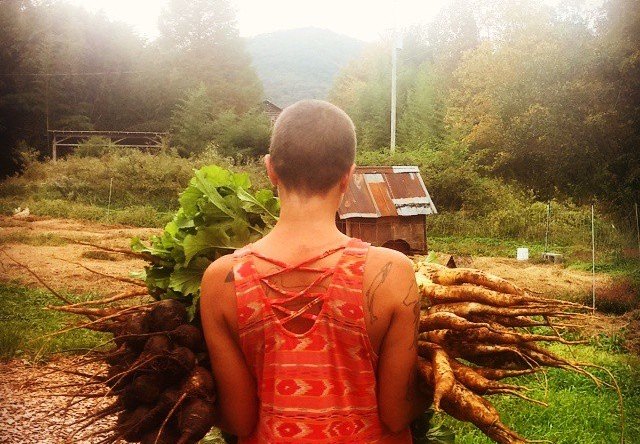
This piece was originally published in the Summer 2019 issue of the Biodynamics journal, a benefit of membership in the Biodynamic Association. Interested in becoming a member? Join now for as little as $5 and enjoy the most recent 4 issues and lots of other benefits.
By Darby Weaver
There have been moments in my life where the numbness of loss had me welcoming the cold sting of an early spring rain on my skin. I’ve spent days desperately trying to hold together the pieces of my heart in my chest only to watch them tumble to the ground through my fingers and crack like freshly picked eggs. I can remember when the reality of my divorce sunk deeply through my mind, through my spirit, and set like concrete into my physical body. I can still feel the trembling of my muscles and the frantic racing of my thoughts and the way I could never quite catch up to my breath. There are certain things that happen in this life that we just can’t be prepared for.
No amount of time on our knees or nose in books can give us the kind of foresight that truly shields us from the painful unfolding of time. We are all asked by the cosmos at a certain point to be humbled-to be rocked to our very core so that we may identify with the light that resides there. These experiences arrive in our lives with different faces; each of us beckoned to carry a different burden. This can sometimes make it difficult for us to relate to one another even though the very experience of suffering is universal.
It’s times like these that bring me to the garden. Growing plants and allowing parts of myself to become intertwined with the pulsating rhythm of the natural world keeps me grounded. Standing on the Earth and feeling the powerful energy of renewal in soil under my toes allows me to be fully present to the miracle that is the here and now. Painstakingly nurturing beautiful crops that become lost to the pressures of pests, disease, or weather tie me to the cycles of death and rebirth where nothing has an end.
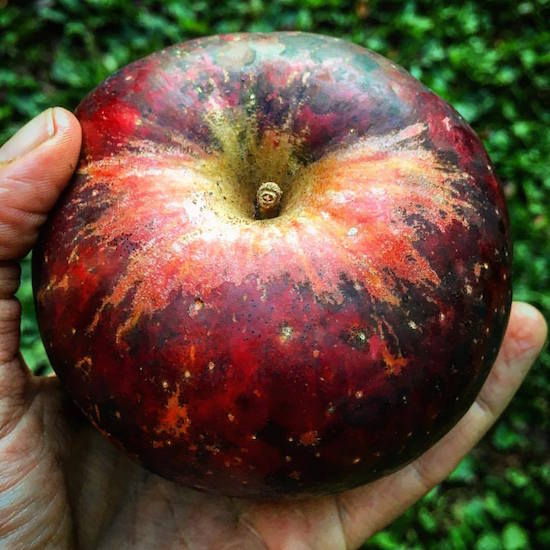
To watch a crop of beans eaten down into lacey fragments that blow apart in the wind be replaced by a vibrant, verdant cover crop is to recognize the phoenix at work. Losing a lamb in the night or finding a dead chicken in the coop reminds me how precious my steamy breath really is on a frigid, winter morning. Sometimes it isn’t until we lose something or someone that we can truly perceive the beauty we held while it lasted. I don’t know that my relationship with my husband could have become what it is today if we hadn’t experienced the loss of our marriage over two years ago.
When we are in our most need of healing, whether we’ve forfeited our spirit, lost in the throws of a chronic illness, or have become weighted down by the hurtful words of someone who loves us, there is medicine to be found in the living, breathing world around us. As humans we tend to do what humans do best and label each plant, explain each growth habit and plot out the most probable purposes for colors, textures, and life cycles. We feel control when we are able to write a story about how it all came to be and sometimes this need to qualify and quantify removes us from the undefinable complexity hosted by the subtle energies seeping into our experience from the more unnameable forces. There is an element to the way a tomato grows that we will never truly understand and it is in that unknowable space that the healing can be found. Gardening and raising livestock on the land soothes our souls because it enforces a strict code of faith.
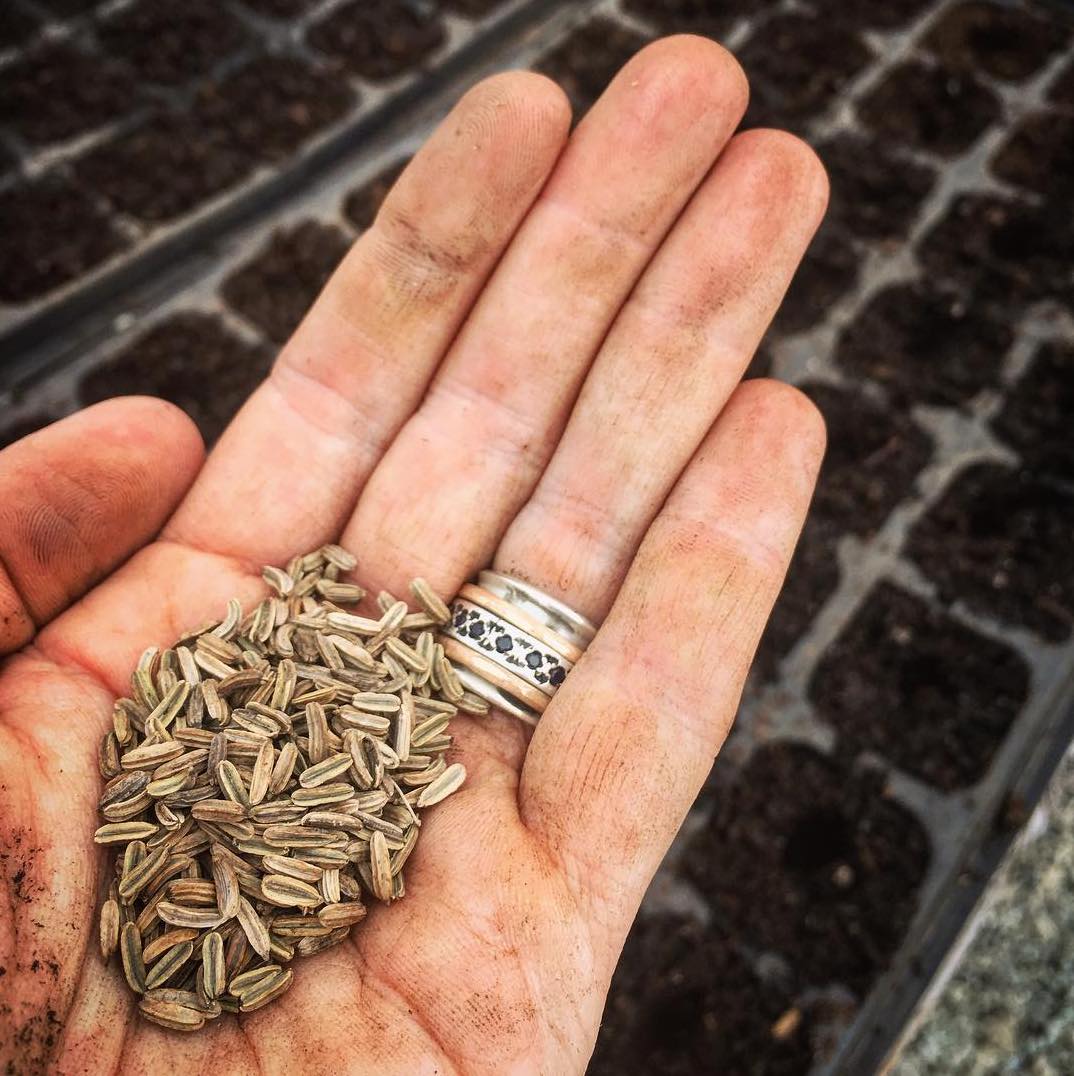
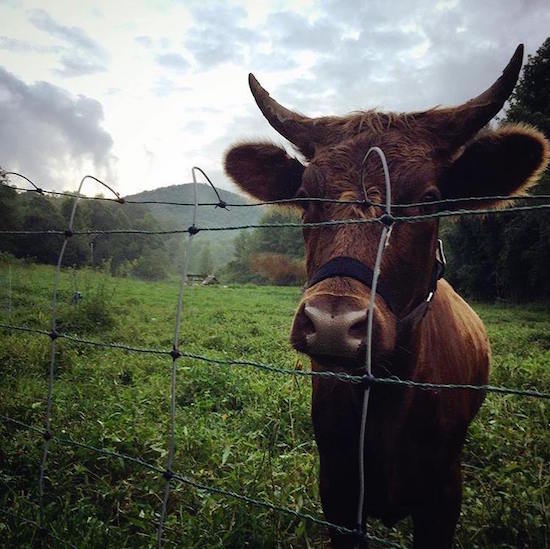
This faith doesn’t come from one particular text and has no allegiance to one altar or symbol over another. The faith comes from trusting that no matter how many hurdles are encountered along the road to harvest, the seasons will provide ample opportunities to produce. When we put a seed in the ground or in a transplant tray, we may be intentional and pick the right dates and varieties to meet the needs of our climate, but we are also believing that the efforts made will one day result in bunches of kale that will be washed in the kitchen and shared with our family for dinner. So long as we choose to persevere and remain flexible to variables present within this living, conscious fabric, we are invited to cultivate abundance and learn powerful lessons of strength, compassion, and acceptance along the way. Working in the field has a way of putting life into perspective and taking the pressure of understanding it all off of our shoulders.
My time on the farm is a constant reminder that while there may be no true end to suffering in my lifetime, my individual choices have an impact that can make the road easier for myself and others. It may not be a big deal to weed a small pear tree being choked out by grasses in the great scheme of things, but down the road this small act could secure fruit in the future. When we see others around us suffering from the pressures of their personal lives, the condemning injustices and oppressive forces of our society, or from the painful and inescapable truth of death, a small, seemingly meaningless act of love can lead to a bountiful harvest when the conditions necessary are perfected, just out of sight of the present moment.
It is not a requirement to contribute to the welfare of other beings while we traverse this landscape and we will meet people in our lives that do not make it a priority. Chances are, however, that these symbiotic gestures will produce much more abundantly than the sterile efforts of one who looks to move through the world without the overlapping benefits of others. A farm is truly able to care for itself as a whole when the activities of the living beings within it have been woven together and their destinies become shared. When the fate of the woodlot and creek beds are as important as the soil holding the pea shoots and salad greens, harmony has a chance to develop longevity.
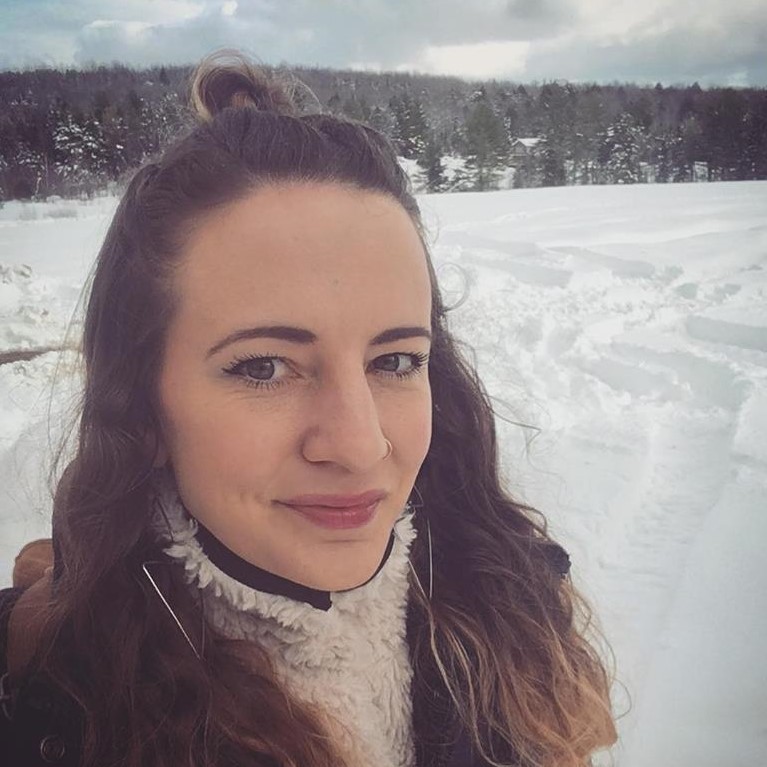 Darby Weaver will present a workshop on Introduction to the Farm Body at the 2019 Biodynamic Conference.
Darby Weaver will present a workshop on Introduction to the Farm Body at the 2019 Biodynamic Conference.
After growing up in Lancaster County, Pennsylvania, Darby attended Sterling College in northern Vermont, where she received a degree in sustainable agriculture. She has since spent the last decade growing biodynamic produce in the Southeast and teaching holistic and ecological methods to learners of all ages and backgrounds through articles, agriculture intensives, and workshops. Darby's passion for this work is derived from an endless curiosity for the complex and dynamic relationships that build the natural world. She finds her greatest meaning from sharing with others how to engage with these living systems to create nourishing food for the body and mind. Her most recent project finds her on 20 acres in northern Vermont where she is developing an agroecology system with her husband and continuing on her personal journey of using landcraft to cultivate soul.

Comments
GregoryA said:
Lovely article--vivid and meaningful. Thank for sharing...thank you for your vulnerability...thank you for the reminder to dare to "do" the small acts ( "t may not be a big deal to weed a small pear tree.... but down the road this small act...")
Add new comment